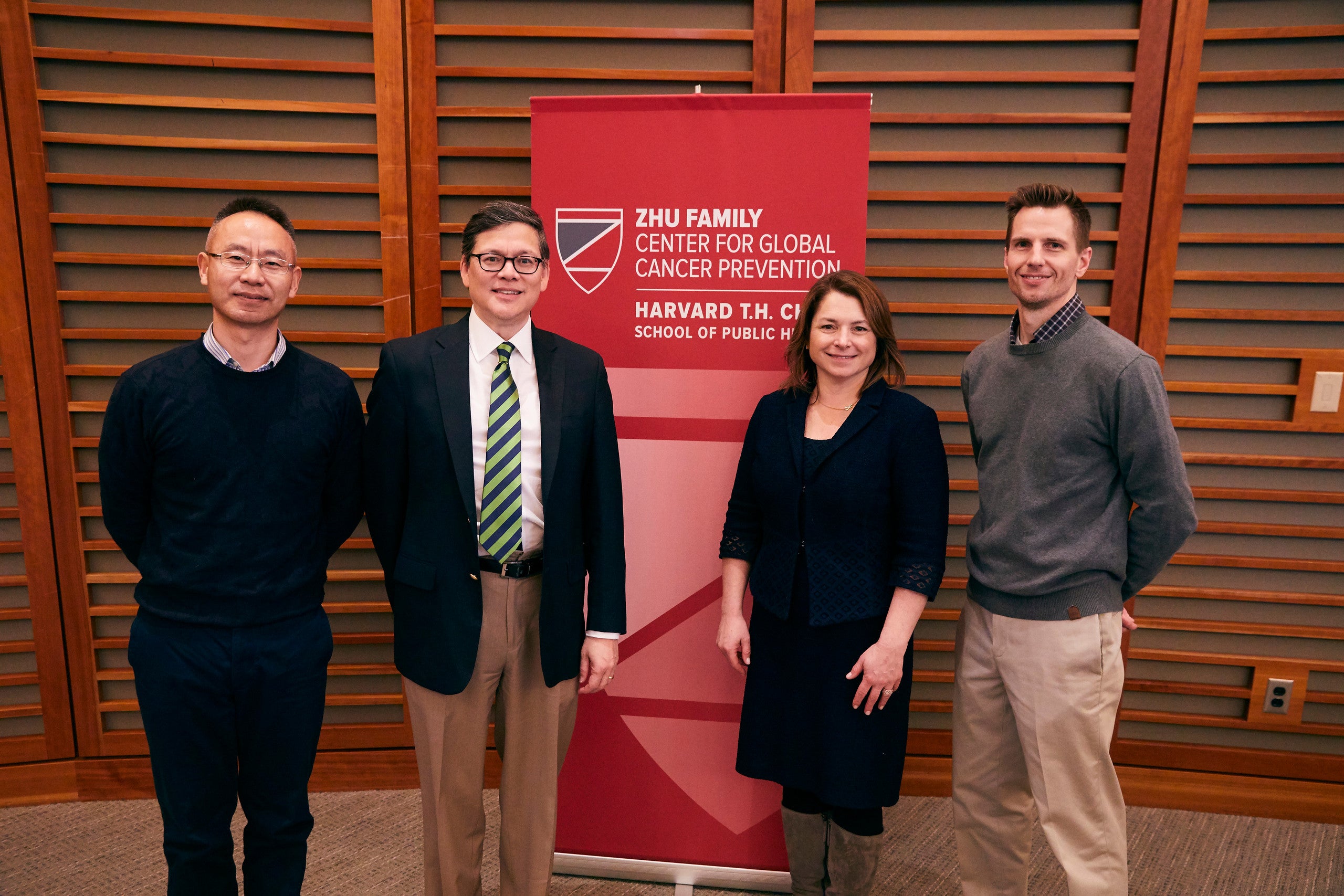Reducing the burden of prostate cancer
Lorelei Mucci, professor of epidemiology at Harvard T.H. Chan School of Public Health, has spent her career seeking to understand why prostate cancer occurs, how it can be prevented, and what patients can do to improve their lives…

Why more sex may lower prostate cancer risk
Frequent ejaculation has been linked with decreased prostate cancer risk. One reason may be that frequent ejaculation may help clear potentially cancer-causing substances from the prostate, according to Harvard Chan School's Lorelei Mucci.
Diet may influence risk of aggressive prostate cancer
Dietary patterns that are associated with inflammation and insulinemia—a condition marked by high levels of insulin in the blood—may put men at an increased risk for aggressive forms of prostate cancer, according to new research led by Harvard…
Cancer symposium looks at new diagnostics for early detection
A symposium brought together experts from around the world and across disciplines to discuss efforts to build better diagnostic tools for myriad cancers.

New study reveals genetic clues to aggressive prostate cancers
Among people with prostate cancer, higher levels of aneuploidy—a state in which a cell has too few or too many copies of some chromosomes—is associated with more aggressive and lethal forms of the cancer, according to new research…
Diet may affect prostate cancer risk
Certain foods have been linked to prostate cancer risk—and a man’s risk of dying prematurely from the disease.
Long-term vigorous exercise may lower risk of advanced and fatal prostate cancers
October 23, 2018 –Prostate cancer is among the most common forms of cancer affecting men today. In 2018, more than 1.2 million new cases will be diagnosed globally, according to the International Agency for Research on Cancer. While…

Research Dream Team to focus on multiple myeloma precursors
Lorelei Mucci, associate professor of epidemiology at Harvard T.H. Chan School of Public Health, is among the researchers participating in a new Stand Up To Cancer (SU2C) Dream Team focused on revolutionizing the treatment of multiple myeloma. Stand…
Aging, longevity the focus at annual Alumni Weekend
October 17, 2017 – Harvard Chan School alumni returned to campus for their annual weekend October 13-15, where they heard about public health perspectives on aging and longevity from a variety of experts and connected with former classmates.…

Can’t smell asparagus pee? Is Pokémon GO good exercise?
Two studies from Harvard T.H. Chan School researchers take a look at quirky topics in The BMJ’s annual Christmas edition For immediate release: December 13, 2016 Boston, MA – A large proportion of individuals of European-American descent cannot smell “asparagus…
